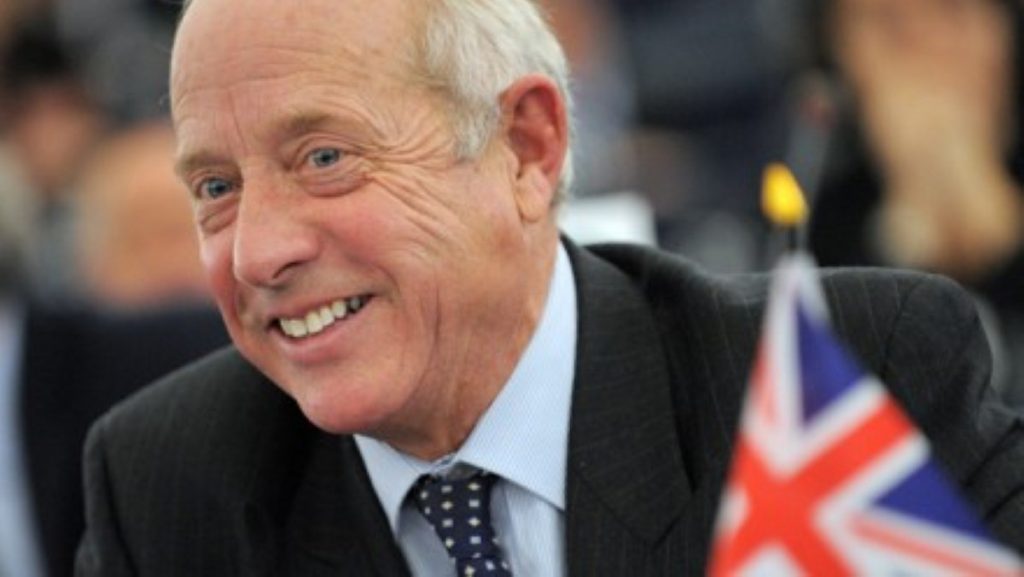Comment: Syria is stuck in the Middle Ages – we must not get involved
By Godfrey Bloom
I was at a garden party in Lincolnshire on Sunday, a charity fund raiser, and I spoke to a very intelligent and experienced retired businessman who, like most of us, was appalled to see the horror that chemical weapons cause to the innocent. But beyond that natural human reaction this charming man lost all sense of rationality.
"We must do something. We cannot let this bestial behaviour go unpunished."
"Whom do we punish?" I asked him.


"Well, Assad of course."
The western press and intelligence services have already pre-judged any report or inspection. Assad is to blame and there is the end to it. Yet if you watch Russia Today the exact opposite is the view. The long and short of it is we do not know and probably will never know beyond 'reasonable doubt' – the least that is demanded by the British legal system for just shop lifting, never mind massive air strikes on another country with all that entails.
The military practicalities of action did not occur to this man. Blowing up a chemical weapons dump in his mind was no more than putting a mouse trap in his basement. Clinical, precise, no chance of collateral damage. All very neat and tidy. Oh! And by the way, we know it must have been Assad because the Americans say so. He looked blank when I suggested we may have heard that before.
The trouble with the Americans is that they never focus on a war aim or exit strategy. This is deep -rooted in their history. Wars with themselves, the UK, Spain, Mexico, Vietnam – the list is endless. The military industrial complex recognised so astutely by president Eisenhower is at work constantly. It must have war to feed itself. It is an economic great white shark, it must keep moving to eat and breath.
Most wars are not worth fighting. As a keen military historian this has become more apparent to me the older I get. British interests cannot possibly be served by another Middle East debacle. Iraq, Libya, Egypt, Afghanistan are basket cases. No good has come of our interference, no matter how well meaning. We can't help countries living in a time capsule with the dial set in the Middle Ages. Syria is not, nor ever has been, a legitimate sphere of influence for the US or the UK. It is in Russia's back yard. How much longer will their patience run?
We must ask ourselves if the people, those innocent babes and mothers, better or worse off in Syria before the largely imported revolution? Were the Jews, Christians, and Kurds living there safer or more endangered? Were the surrounding countries, Turkey and Jordan in particular, advantaged or disadvantaged? Why does our concern not extend in military form to Africa or Tibet?
There is some quite extraordinary comment, especially in so-called quality newspaper editorials, that the British refusal to leap to attention at the command of the US president will somehow diminish our role on the world stage. Nothing could be further from the truth. Our prestige on the world stage is massively enhanced. War is expensive in blood and treasure; it is never popular in democracies unless there is a very clear national interest.
The invasion of the Falklands by a homicidal fascist dictatorship was met by force with the overwhelming support of the nation. But the Iraq war was greeted with national ambivalence. My own party were against it from the start. We did not buy into weapons of mass destruction and we were right. Once bitten, twice shy.
The Foreign Office paper is no better than a tipster's column on any tabloid. Assad 6-4 on Sunni Rebels evens, Kurds 60-1. 'The balance of probability'. I don't think this balance of probability is good enough.
We have set an example to the world, not for the first time in history. Our parliament is the voice of the people on this one.
The example has already been noticed. Congress and the French parliament are now to have a say on the involvement of their young men and women, who always end up paying the ultimate price. Compassion should not just be reserved for other people. A trip to Hadley Court might concentrate the minds of this gung-ho coalition.
Again one of our great political problems is the lack of military experience of our politicians. Most of the Tory rebels had junior officer service experience – no surprise. A sense of history would also be desirable. I fear most of the front and shadow bench representatives have not had the benefit of a traditional education. Incidentally, that's not to be confused with an expensive one.
Godfrey Bloom is an associate member of the Royal College of Defence Studies (Strategy) and a holder of the territorial decoration and bar. He began his City career in the investment department of Matthews Wrightson in 1967 but retired from investment management in 2004 to take up his seat in the European parliament, representing Yorkshire and North Lincolnshire. His experience includes the EU internal consumer affairs committee and more recently acting as co-ordinator of the Europe of Freedom and Democracy Group on the economic and monetary affairs committee and women’s rights and gender equality committee. He is also a substitute member of the Environment Committee.
The opinions in Politics.co.uk's Comment and Analysis section are those of the author and are no reflection of the views of the website or its owners.









